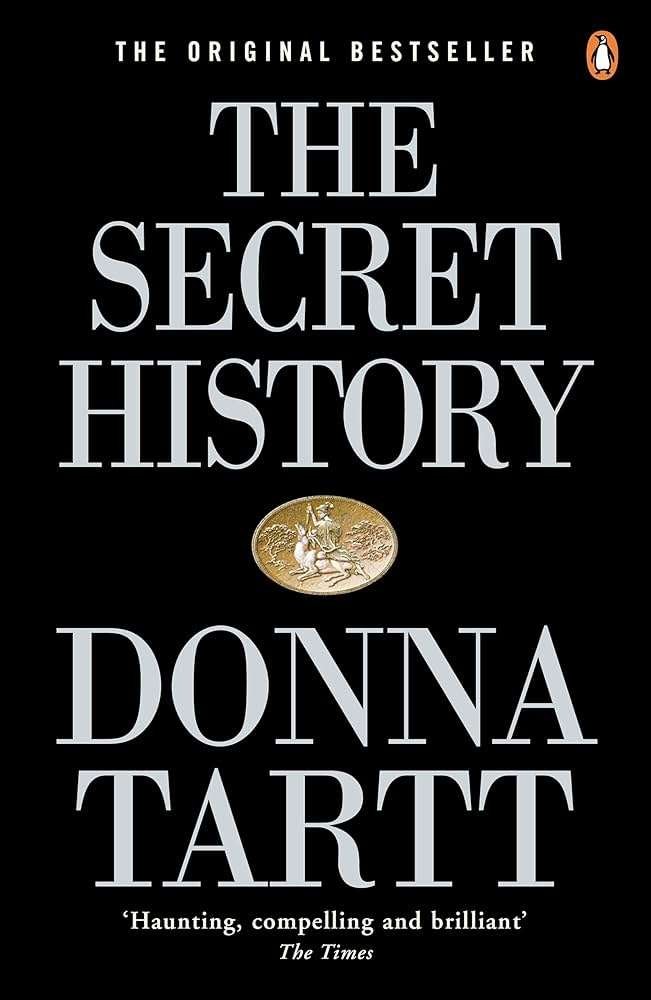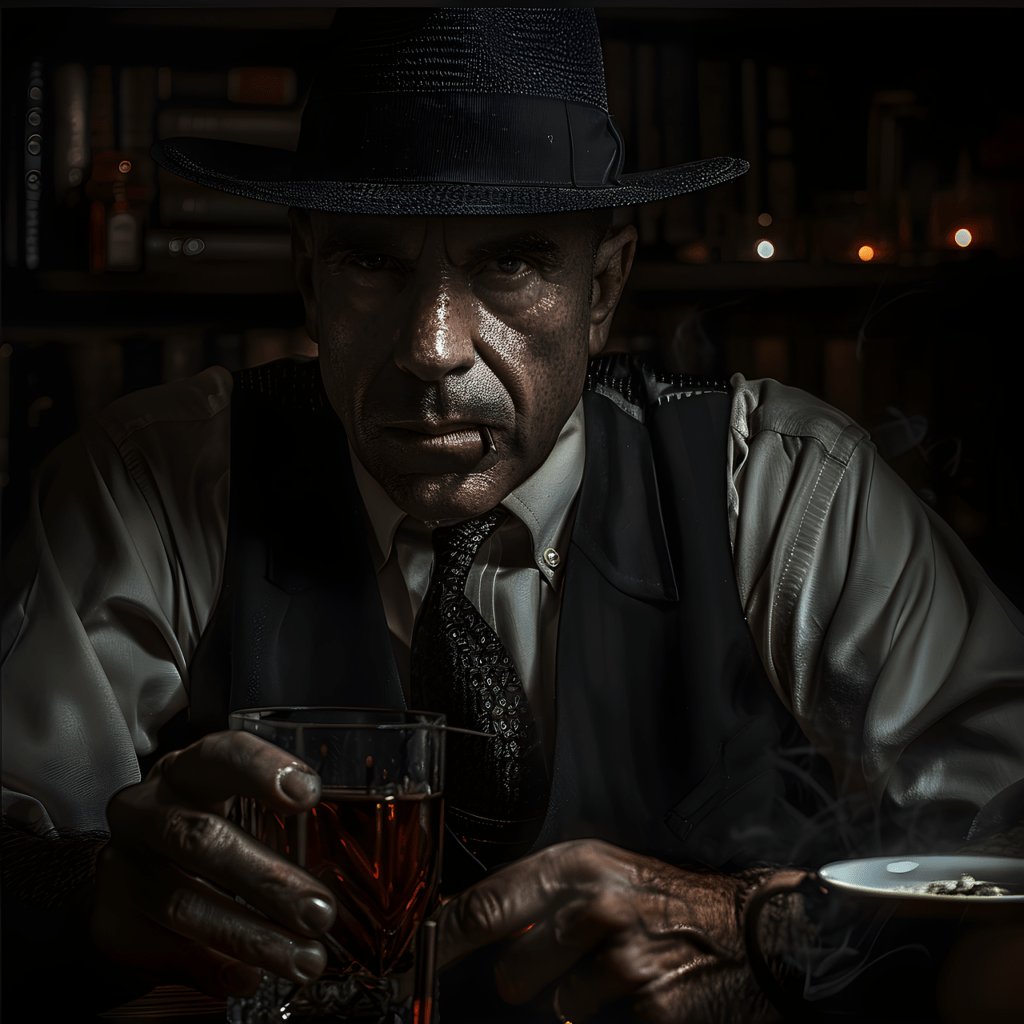Introduction
Have you ever been captivated by a book that pulls you into a world of dark secrets, complex characters, and psychological intrigue? 🖤📚 Look no further than Donna Tartt’s mesmerizing novel, “The Secret History.” This cult classic has been enthralling readers for decades, weaving a tale of intellectual obsession and moral ambiguity that’s hard to put down.
Imagine stepping into the halls of an elite New England college, where a group of eccentric classics students harbors a deadly secret. As you delve deeper into their world, you’ll find yourself questioning the limits of morality, the allure of belonging, and the consequences of unchecked ambition. “The Secret History” isn’t just a novel; it’s an experience that will leave you pondering its mysteries long after you’ve turned the final page.
Join us as we unravel the layers of this enigmatic masterpiece, exploring everything from its dark academia aesthetics to its lasting cultural impact. We’ll dive into the depths of Tartt’s literary techniques, dissect the complex psyche of her characters, and examine the themes that have made “The Secret History” a timeless favorite among readers and critics alike. 🔍🖋️

Unveiling “The Secret History”
Overview of Donna Tartt’s bestselling novel
“The Secret History” by Donna Tartt is a masterpiece of contemporary literature that captivated readers worldwide upon its release in 1992. This debut novel tells the haunting tale of a group of eccentric classics students at an elite New England college. The story is narrated by Richard Papen, a California transplant who becomes entangled in a web of secrets, lies, and ultimately murder.
Tartt’s novel is renowned for its intricate plot, which revolves around the mysterious death of a student and the subsequent unraveling of the group’s relationships. The book’s structure is both compelling and unconventional, revealing the murder early on and then delving into the events leading up to it and its aftermath.
Critical acclaim and literary impact
“The Secret History” received widespread critical acclaim and has since become a modern classic. Its impact on the literary world can be seen in several key areas:
- Genre-defying narrative
- Influence on ‘dark academia’ subculture
- Revival of the campus novel genre
- Exploration of complex moral themes
| Aspect | Impact |
| Sales | Over 5 million copies sold worldwide |
| Awards | Orange Prize for Fiction (shortlisted) |
| Adaptations | Multiple attempts at film adaptation (ongoing) |
| Literary Influence | Inspired a generation of writers in the mystery and literary fiction genres |
The novel’s success catapulted Donna Tartt to literary stardom, establishing her as one of the most significant voices of her generation. Its blend of intellectual discourse, psychological suspense, and vivid characterization has inspired countless authors and continues to be studied in literature courses worldwide.
Themes explored in the book
“The Secret History” delves into a rich tapestry of themes that resonate with readers on multiple levels:
- The allure of belonging and exclusivity
- The corruption of innocence
- The dangers of unchecked intellectual pursuits
- The blurred lines between morality and immorality
- The power of secrets and their consequences
Tartt’s exploration of these themes is both nuanced and unflinching, offering readers a profound meditation on the human condition. The novel’s characters grapple with questions of ethics, identity, and the pursuit of beauty in a world that often seems devoid of meaning.
As we delve deeper into the enigmatic characters that populate Tartt’s richly imagined world, we’ll see how these themes are embodied in their actions and motivations, driving the narrative forward with relentless intensity.

The Enigmatic Characters
Now that we’ve unveiled “The Secret History,” let’s delve into the complex and captivating characters that drive this dark academia masterpiece. Donna Tartt’s novel is populated by a cast of enigmatic individuals whose depth and intricacy contribute significantly to the story’s allure.
A. Richard Papen: Our unreliable narrator
Richard Papen serves as our window into the shadowy world of Hampden College. As an unreliable narrator, Richard’s perspective colors every aspect of the story, leaving readers to question the veracity of his account. His outsider status and desire to belong make him a relatable yet flawed protagonist, whose observations are tinged with both admiration and envy.
| Characteristic | Description |
| Background | Working-class California native |
| Motivation | Desire for acceptance and reinvention |
| Role | Narrator and observer |
| Reliability | Questionable, influenced by his biases |
B. The exclusive Greek study group
At the heart of “The Secret History” lies the tight-knit circle of Classics students. This group forms a microcosm of intellectual elitism and moral ambiguity. The members include:
- Francis Abernathy: The wealthy and aesthetically-minded dandy
- Charles and Camilla Macaulay: The ethereal and inseparable twins
- Bunny Corcoran: The loud, crass, and ultimately doomed member
Each character brings a unique dynamic to the group, creating a complex web of relationships and tensions that drive the plot forward.
C. Professor Julian Morrow’s influence
The charismatic and enigmatic Professor Julian Morrow acts as both a mentor and a catalyst for the events that unfold. His unorthodox teaching methods and emphasis on ancient Greek philosophy shape the students’ worldview and moral compass. Morrow’s influence extends beyond the classroom, blurring the lines between academic pursuit and dangerous obsession.
Key aspects of Julian Morrow’s influence:
- Encouragement of intellectual elitism
- Emphasis on ancient Greek ideals and rituals
- Cultivation of a cult-like atmosphere among his students
- Indirect role in the group’s moral descent
D. Henry Winter: The charismatic leader
Henry Winter emerges as the de facto leader of the Greek study group, embodying both brilliance and darkness. His intellectual prowess, combined with a detached and almost sociopathic demeanor, makes him a fascinating and terrifying figure.
| Trait | Description |
| Intelligence | Exceptional, multilingual |
| Charisma | Magnetic, yet aloof |
| Morality | Fluid, guided by ancient philosophy |
| Influence | Powerful sway over the group |
Henry’s actions and decisions drive much of the plot, as his pursuit of transcendence through ancient rituals leads the group down a dark path. His complex relationship with Richard adds another layer of intrigue to the narrative.
As we explore these enigmatic characters, we begin to see how their intertwined fates and conflicting motivations set the stage for the psychological intrigue that permeates “The Secret History.” Their actions and relationships form the backbone of this gripping tale, drawing readers into a world where intellect, ambition, and morality collide with devastating consequences.

Dark Academia Aesthetics
As we delve deeper into Donna Tartt’s “The Secret History,” we encounter a captivating world steeped in dark academia aesthetics. This atmospheric element plays a crucial role in setting the tone and enhancing the narrative’s allure.
The Allure of Hampden College
Hampden College, the fictional New England institution where the story unfolds, embodies the quintessential dark academia setting. Its ivy-covered buildings, secluded campus, and air of intellectual elitism create an irresistible backdrop for the novel’s events. The college’s architecture and ambiance evoke a sense of timelessness and mystery, drawing readers into a world where knowledge and secrets intertwine.
| Aspect | Description |
| Architecture | Gothic-inspired buildings, ivy-covered walls |
| Atmosphere | Foggy mornings, dimly lit libraries, secluded courtyards |
| Symbolism | Represents intellectual pursuits and hidden knowledge |
Classical Education and Elitism
At the heart of “The Secret History” lies a small, exclusive group of Classics students, highlighting the novel’s focus on classical education and elitism. This emphasis on ancient languages, philosophy, and literature creates an atmosphere of intellectual superiority and isolation from the modern world.
Key elements of classical education in the novel:
- Intensive study of Greek and Latin
- Exploration of ancient philosophy and mythology
- Emphasis on critical thinking and debate
- Limited enrollment and selective admission
The elitist nature of this education serves to separate the protagonists from their peers, fostering a sense of superiority and detachment that ultimately contributes to their moral decline.
Romanticization of Intellectual Pursuits
“The Secret History” masterfully romanticizes intellectual pursuits, presenting them as both alluring and potentially dangerous. This romanticization is a hallmark of dark academia aesthetics, elevating scholarly endeavors to an almost mystical status.
Elements of romanticized intellectualism in the novel:
- Late-night study sessions in candle-lit rooms
- Passionate debates on esoteric topics
- The pursuit of knowledge as a form of transcendence
- Blurring of lines between academic study and personal obsession
This idealization of intellectual life creates a seductive atmosphere that draws both the characters and readers into a world where the pursuit of knowledge takes precedence over conventional morality.
The dark academia aesthetics in “The Secret History” serve not only to create a captivating atmosphere but also to underscore the novel’s themes of isolation, elitism, and the potential dangers of unchecked intellectual ambition. As we move forward, we’ll explore how these aesthetic elements intertwine with the psychological intrigue that drives the narrative.

Psychological Intrigue
Now that we’ve explored the dark academia aesthetics of “The Secret History,” let’s delve into the psychological intrigue that permeates the novel. Donna Tartt’s masterful storytelling creates a web of complex relationships and moral dilemmas that keep readers on the edge of their seats.
Group Dynamics and Manipulation
The core of “The Secret History” revolves around a tight-knit group of classics students at Hampden College. Their interactions reveal a fascinating study in group dynamics and manipulation. The charismatic leader, Henry Winter, exerts a powerful influence over his peers, subtly shaping their thoughts and actions.
| Character | Role in Group Dynamics |
| Henry | Manipulative leader |
| Bunny | Volatile outsider |
| Richard | Naive observer |
| Francis | Conflicted follower |
| Camilla | Enigmatic influencer |
| Charles | Dependent personality |
This table illustrates how each character plays a distinct role in the group’s dynamics, contributing to the psychological tension that builds throughout the novel.
Moral Ambiguity and Justification
One of the most compelling aspects of “The Secret History” is its exploration of moral ambiguity. The characters frequently engage in questionable actions, yet they find ways to justify their behavior. This creates a psychological tug-of-war for both the characters and readers alike.
Key elements of moral ambiguity in the novel include:
- Rationalization of murder
- Blurring lines between right and wrong
- Intellectual justifications for immoral acts
- The role of group mentality in decision-making
As the story progresses, readers are forced to confront their own moral boundaries, questioning how far they might go in similar circumstances.
The Consequences of Secrets
The title “The Secret History” alludes to the profound impact that hidden truths can have on individuals and relationships. The psychological weight of keeping secrets becomes a central theme, driving character development and plot progression.
The consequences of secrets manifest in various ways:
- Paranoia and anxiety
- Strained relationships
- Erosion of trust
- Guilt and self-loathing
- Eventual unraveling of carefully constructed facades
These psychological burdens create a palpable tension throughout the novel, keeping readers engrossed in the characters’ internal struggles.
As we witness the characters grapple with their choices and the secrets they keep, we’re drawn into a world where psychological intrigue reigns supreme. The complex interplay of group dynamics, moral ambiguity, and the weight of secrets creates a rich tapestry of human psychology that continues to captivate readers long after they’ve turned the final page.

Literary Techniques and Style
Nonlinear narrative structure
Donna Tartt’s “The Secret History” employs a masterful nonlinear narrative structure that captivates readers from the very first page. This technique allows Tartt to weave a complex tapestry of events, revealing information gradually and keeping readers on the edge of their seats. The novel opens with the aftermath of a murder, immediately drawing readers into the heart of the story before taking them back in time to explore the events leading up to this pivotal moment.
This nonlinear approach serves several purposes:
- It creates immediate intrigue
- It allows for deeper character development
- It enhances the psychological depth of the narrative
By jumping between different time periods, Tartt creates a sense of inevitability while still maintaining suspense, a feat that contributes significantly to the novel’s dark academia aesthetic.
Foreshadowing and suspense
Tartt’s use of foreshadowing is both subtle and pervasive, creating an atmosphere of impending doom that permeates the entire novel. From seemingly innocuous comments to more overt hints, the author plants seeds of what’s to come, keeping readers in a constant state of anticipation.
Some key elements of Tartt’s foreshadowing technique include:
- Subtle hints in dialogue
- Symbolic imagery
- Character reactions and behaviors
This masterful use of foreshadowing works in tandem with the nonlinear structure to build suspense, creating a reading experience that is both intellectually stimulating and emotionally gripping.
Symbolism and allusions
“The Secret History” is rich in symbolism and literary allusions, reflecting the academic setting of the novel and the intellectual pursuits of its characters. Tartt’s use of these literary devices adds depth and complexity to the narrative, rewarding attentive readers with layers of meaning.
| Symbol/Allusion | Meaning |
| Dionysus | Represents the wild, irrational aspects of human nature |
| Greek tragedy | Reflects the inevitability of the characters’ fate |
| The woods | Symbolizes the unknown and the unconscious |
These symbols and allusions serve to:
- Enhance the novel’s themes
- Deepen character development
- Create a sense of intellectual exclusivity
Tartt’s skillful integration of these elements contributes to the novel’s reputation as a cornerstone of the dark academia genre, appealing to readers who appreciate literary complexity and psychological depth.
The combination of nonlinear narrative, foreshadowing, suspense, symbolism, and allusions in “The Secret History” creates a rich, multi-layered reading experience. This intricate web of literary techniques not only showcases Tartt’s prowess as a writer but also serves to fully immerse the reader in the dark, intellectual world of the novel. As we delve deeper into the story, these elements work together to create a haunting narrative that lingers in the mind long after the final page is turned.

Exploring the Novel’s Themes | The Secret History
Now that we’ve delved into Donna Tartt’s literary techniques and style, let’s examine the profound themes that make “The Secret History” a captivating and thought-provoking read.
The Corruption of Innocence | The Secret History
“The Secret History” masterfully explores the gradual erosion of moral boundaries among its young protagonists. This theme is central to the novel’s dark allure, as we witness the characters’ descent from naive college students to participants in heinous acts.
- Initial innocence of the main characters
- Gradual exposure to morally ambiguous situations
- The role of knowledge and classical studies in corrupting ideals
- Consequences of lost innocence on individual psyches
The Dangers of Obsession | The Secret History
Obsession drives the narrative forward, serving as both a catalyst for the characters’ actions and their ultimate downfall. Tartt explores various forms of obsession throughout the novel:
| Type of Obsession | Example in the Novel |
| Academic pursuit | The study of Ancient Greek |
| Social belonging | Desire to fit in with the elite group |
| Idealization | The romanticization of classical culture |
| Self-destruction | Characters’ spiraling into harmful behaviors |
The Blurred Lines Between Reality and Fantasy | The Secret History
One of the most intriguing aspects of “The Secret History” is how it challenges readers’ perceptions of reality. Tartt creates a world where the boundaries between the real and the imagined become increasingly indistinct.
- The influence of classical myths on characters’ worldviews
- Drug-induced altered states of consciousness
- Self-deception and unreliable narration
- The power of collective belief in shaping reality
The Price of Belonging | The Secret History
At its core, “The Secret History” is a stark exploration of the lengths people will go to in order to belong. This theme resonates strongly with readers, as it taps into universal human desires and fears.
- The allure of exclusivity and elitism
- Sacrificing individuality for group acceptance
- The psychological toll of maintaining secrets
- The ultimate cost of loyalty to a corrupt group
These intertwining themes create a rich tapestry of moral complexity, psychological depth, and philosophical inquiry. Tartt’s exploration of these concepts challenges readers to examine their own beliefs and motivations, making “The Secret History” a profoundly impactful work of literature.
As we move forward, we’ll examine how these themes have contributed to the novel’s enduring cultural impact and legacy, solidifying its place in the contemporary literary canon.

Cultural Impact and Legacy | The Secret History
Influence on the Dark Academia subculture | The Secret History
“The Secret History” by Donna Tartt has become a cornerstone of the Dark Academia subculture, inspiring a generation of readers and influencing fashion, aesthetics, and literary preferences. The novel’s atmospheric portrayal of elite education, classical studies, and intellectual pursuits has resonated deeply with those drawn to the romanticized vision of academia.
The book’s impact on fashion is particularly noteworthy, with many Dark Academia enthusiasts adopting styles reminiscent of the characters:
- Tweed jackets and blazers
- Oxford shoes
- Vintage sweaters and cardigans
- Plaid skirts and trousers
This aesthetic has spread across social media platforms, particularly on Instagram and TikTok, where users share outfits, reading lists, and lifestyle content inspired by “The Secret History” and its themes.
Adaptations and spin-offs | The Secret History
While “The Secret History” has yet to receive a major film or television adaptation, its influence can be seen in various media:
| Medium | Examples |
| Literature | “If We Were Villains” by M.L. Rio, “The Likeness” by Tana French |
| Television | “The Magicians,” “Dead Poets Society” |
| Film | “Kill Your Darlings,” “The Riot Club” |
These works often explore similar themes of elite education, secret societies, and the dangerous allure of knowledge and power.
Enduring popularity and relevance | The Secret History
Nearly three decades after its publication, “The Secret History” continues to captivate readers and maintain its relevance in contemporary literature. Several factors contribute to its enduring appeal:
- Timeless themes: The novel’s exploration of morality, guilt, and the human psyche resonates across generations.
- Complex characters: The enigmatic and flawed cast of characters continues to intrigue readers, sparking discussions and interpretations.
- Academic setting: The idealized portrayal of college life and intellectual pursuits appeals to both current students and those nostalgic for their academic years.
- Literary quality: Tartt’s prose and storytelling techniques have stood the test of time, earning the book a place in modern literary canon.
The novel’s influence extends beyond literature, inspiring discussions on ethics, privilege, and the nature of knowledge. Its exploration of the darker aspects of human nature and the consequences of unchecked ambition remain relevant in today’s society, where issues of power and morality are constantly debated.
As we delve deeper into the 21st century, “The Secret History” continues to find new readers and inspire creative works across various media. Its legacy as a defining work of contemporary literature and its role in shaping the Dark Academia subculture ensure that Donna Tartt’s debut novel will remain a topic of discussion and analysis for years to come.
Conclusion | The Secret History
As we reach the end of our exploration into Donna Tartt’s “The Secret History,” it’s clear that this novel has left an indelible mark on contemporary literature. The intricate plot, complex characters, and thought-provoking themes have captivated readers for decades, solidifying its place as a modern classic.
Key Takeaways | The Secret History
Let’s reflect on the main aspects that make “The Secret History” a compelling and enduring work:
- Psychological depth
- Dark academia aesthetics
- Moral ambiguity
- Literary craftsmanship
Impact on Readers and Literature | The Secret History
The novel’s influence extends beyond its pages, inspiring a generation of writers and readers alike. Here’s a brief overview of its lasting impact:
| Aspect | Impact |
| Genre | Popularized dark academia |
| Writing Style | Inspired atmospheric, introspective prose |
| Character Development | Set a new standard for complex, morally gray characters |
| Themes | Encouraged exploration of ethics, guilt, and privilege in literature |
Reader Experience | The Secret History
Many readers find themselves deeply affected by “The Secret History,” often describing it as a transformative reading experience. The novel’s ability to immerse readers in its dark, intellectual world has led to:
- Increased interest in classics and ancient Greek literature
- Discussions about morality and the consequences of one’s actions
- A surge in popularity for similar atmospheric, character-driven novels
Lasting Legacy | The Secret History
As we close this exploration, it’s worth noting that “The Secret History” continues to find new audiences and spark conversations. Its themes remain relevant, its characters unforgettable, and its prose captivating. Whether you’re a first-time reader or returning for a re-read, Tartt’s novel offers new insights and interpretations with each encounter.
The secret history of “The Secret History” lies in its ability to challenge, enthrall, and provoke thought long after the final page is turned. It stands as a testament to the power of storytelling and the enduring appeal of a well-crafted narrative that delves into the darkest corners of human nature.
“The Secret History” by Donna Tartt is a captivating journey into the dark underbelly of academia, weaving together a tapestry of complex characters, psychological intrigue, and literary brilliance. From its enigmatic protagonists to its exploration of morality and obsession, the novel offers readers a thought-provoking experience that lingers long after the final page.
As we reflect on the enduring impact of this modern classic, we’re reminded of the power of literature to challenge our perceptions and explore the depths of human nature. Whether you’re a long-time fan or a newcomer to Tartt’s work, “The Secret History” continues to captivate and inspire, cementing its place as a cornerstone of contemporary fiction. Delve into its pages and discover the secrets that lie within – you may find yourself forever changed by the experience.
Check Out The Sources
Check Out More



